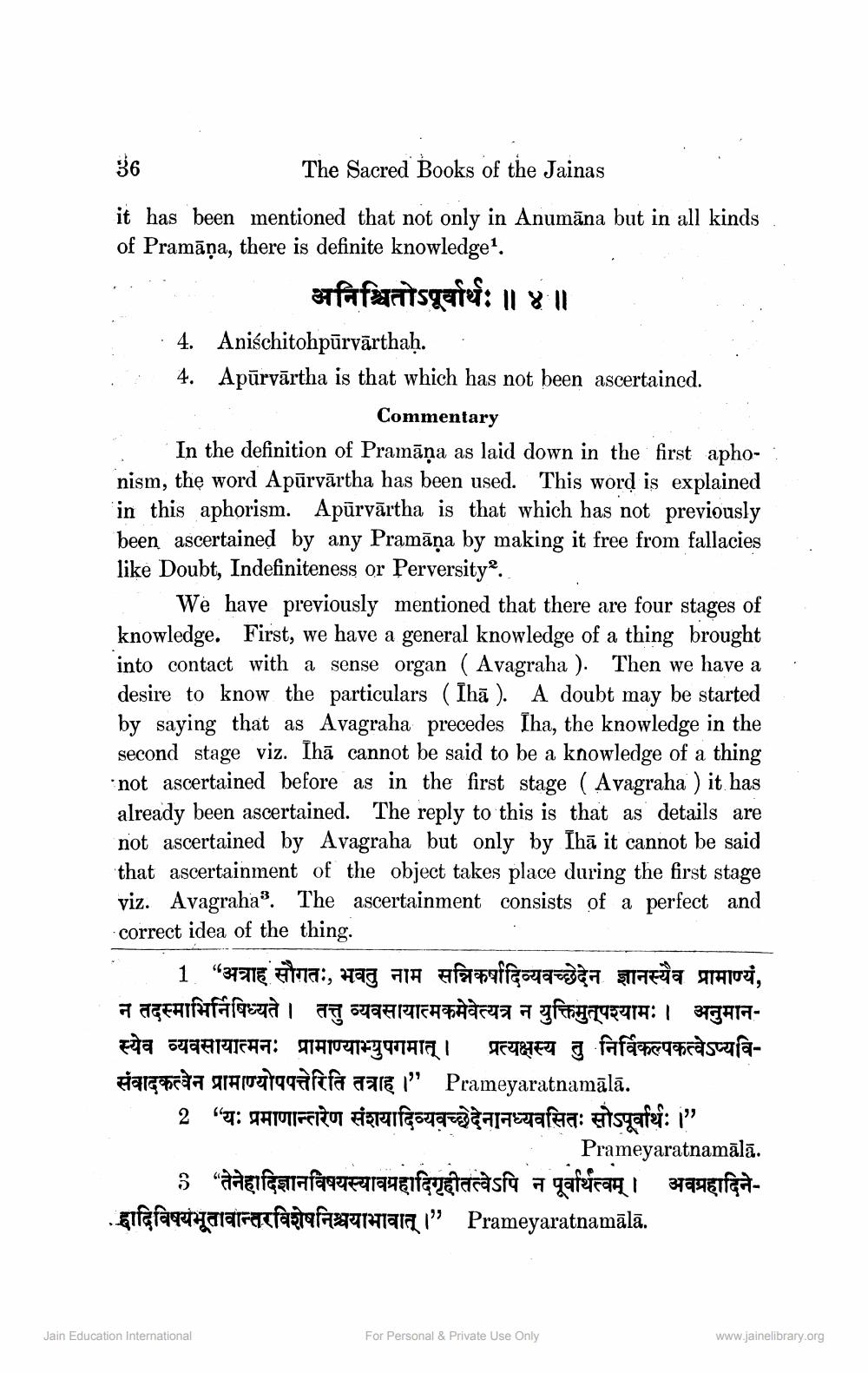________________
The Sacred Books of the Jainas it has been mentioned that not only in Anumāna but in all kinds of Pramāņa, there is definite knowledge'.
faftsgerref: 11 xill 4. Aniśchitohpūrvārthaḥ. 4. Apūrvārtha is that which has not been ascertained.
Commentary In the definition of Pramāņa as laid down in the first aphonism, the word Apārvārtha has been used. This word is explained in this aphorism. Apārvārtha is that which has not previously been ascertained by any Pramāņa by making it free from fallacies like Doubt, Indefiniteness or Perversity.
We have previously mentioned that there are four stages of knowledge. First, we have a general knowledge of a thing brought into contact with a sense organ ( Avagraha ). Then we have a desire to know the particulars ( Ihā). A doubt may be started by saying that as Avagraha precedes Iha, the knowledge in the second stage viz. Ihā cannot be said to be a knowledge of a thing ·not ascertained before as in the first stage ( Avagraha ) it has already been ascertained. The reply to this is that as details are not ascertained by Avagraha but only by Ihā it cannot be said that ascertainment of the object takes place during the first stage viz. Avagraha? The ascertainment consists of a perfect and correct idea of the thing.
1. "37218 atra:, HaC al afsafgouacha marta gratuzi, न तदस्माभिनिषिध्यते । तत्तु व्यवसायात्मकमेवेत्यत्र न युक्तिमुत्पश्यामः। अनुमानस्येव व्यवसायात्मनः प्रामाण्याभ्युपगमात् । प्रत्यक्षस्य तु निर्विकल्पकत्वेऽप्यविfazada grauatagafla Talki" Prameyaratnamālā. 2 67: JAMUTIFCIO Frigya danezafha: pitsgafef: 1"
Prameyaratnamālā. 8 “तेनेहादिज्ञानविषयस्यावग्रहादिगृहीतत्वेऽपि न पूर्वार्थत्वम् । अवग्रहादिनेEife facingalare fatta Fragam Hala" Prameyaratnamālā.
Jain Education International
For Personal & Private Use Only
www.jainelibrary.org




